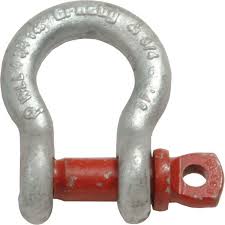记忆方法
“shackle”谐音“手铐”
中文词源
shackle 镣铐,脚链
来自古英语 sceacel,镣铐,脚链,来自 Proto-Germanic*skakulaz,镣铐,脚链,来自 PIE*skek, 摇晃,词源同 shake.-le,工具格后缀。
英语词源
- shackle (n.)
- Old English sceacel "shackle, fetter," probably also in a general sense "a link or ring of a chain," from Proto-Germanic *skakula- (cognates: Middle Dutch, Dutch schakel "link of a chain, ring of a net," Old Norse skökull "pole of a carriage"), of uncertain origin. According to OED, the common notion of "something to fasten or attach" makes a connection with shake unlikely. Figurative use from early 13c. Related: Shackledom "marriage" (1771); shackle-bone "the wrist" (1570s).
- shackle (v.)
- mid-15c., from shackle (n.). Figurative use from 1560s. Related: Shackled; shackling.
权威例句
- 1. All through the feudal ages the ruling class did their best to shackle women with Confucian ethics.
- 历代封建统治阶级都力图用礼教把妇女禁锢起来.
- 2. He's too young to shackle himself with the responsibilities of a family.
- 他还太年轻,不能用家庭责任来束缚自己。
- 3. He is too young to shackle himself with the responsibilities of a family.
- 他还太年轻,不能用家庭责任来束缚自己.
- 4. Don't Break Sap, Sheep, Shackle! You break it! You tank it!
- 别终止敌人处于被:闷棍, 变羊, 束缚亡灵之状态! 你终止它! 你就负责挡!
- 5. The memory is likely a shackle which never rusts away.
- 记忆像是一根永不锈蚀的铁链.

